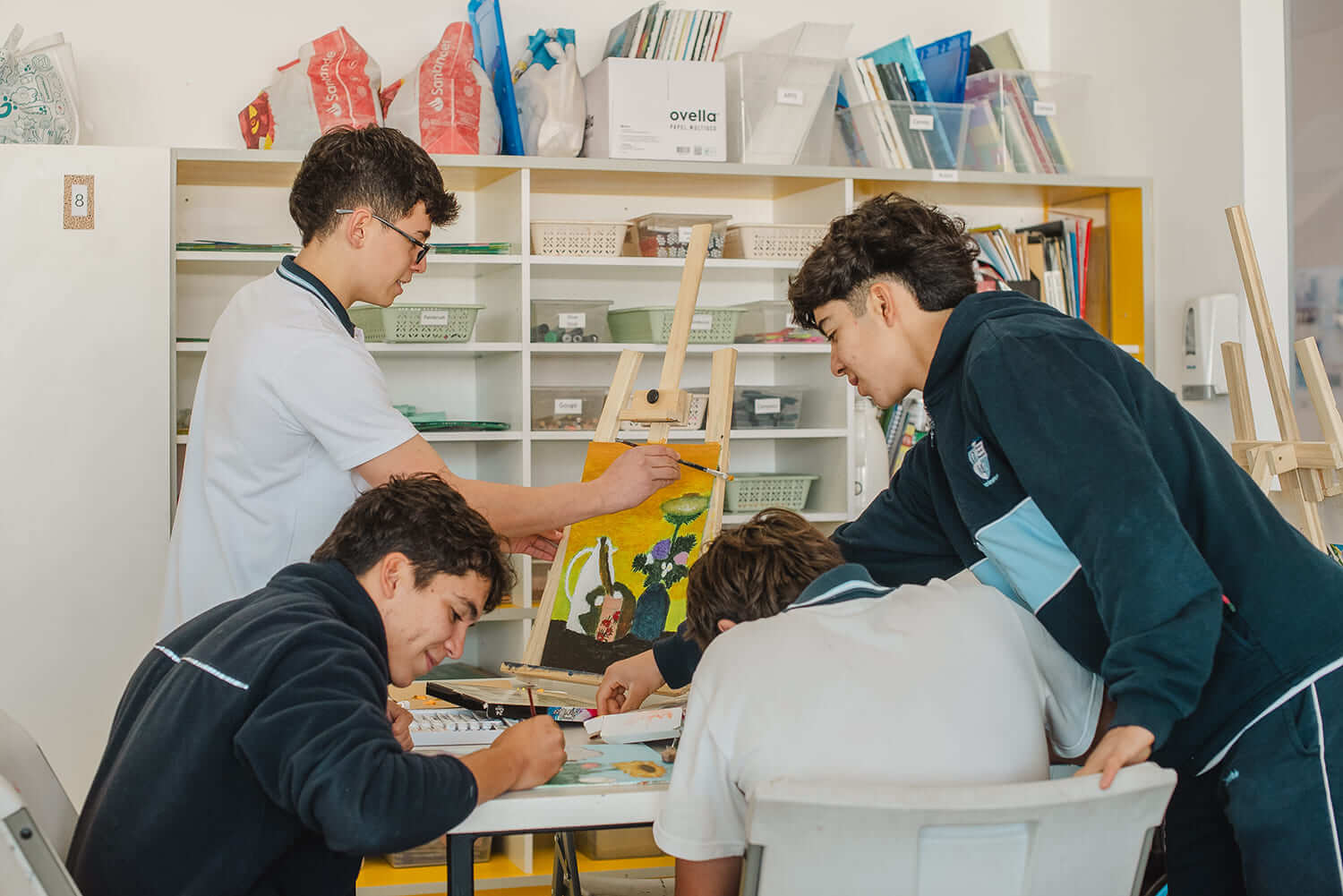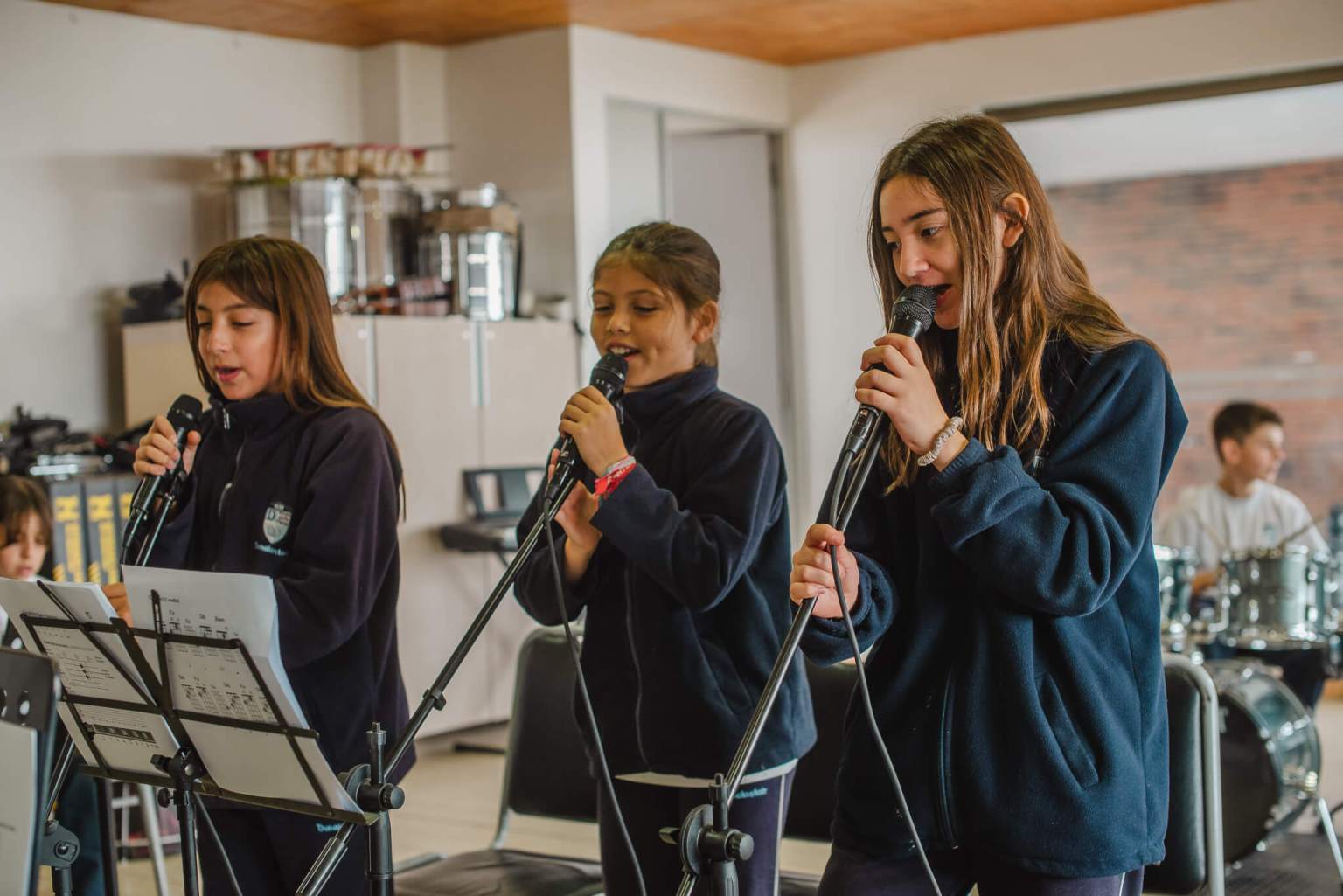Home » D-Project
D-Project
D-PROJECT: Learning is not listening, it is doing, creating, solving.
From Year 5 to 8
We are reinventing the classroom and redesigning learning.
D-Project was born from a powerful question:
What happens when students become the real protagonists of their learning?
At Dunalastair, we understood that our Year 5 to 8 students needed more than just lessons. They needed challenges. They needed purpose. That is why we brought and adapted a unique programme in Chile: real, interdisciplinary, live Project-Based Learning.
Purposeful learning: what motivates them?
Before designing D-Project, we asked questions, observed, and listened.
And we discovered:
- They want to choose: Participate in decisions about their learning.
- They seek relevance: Learning about what really matters.
- They prefer to collaborate: They learn better by working as a team.
- They need real challenges: With support, they dare to go further.
- They want to apply what they have learned: Make knowledge tangible.
- They want to be heard: To showcase their achievements to significant audiences.
From curiosity to action
The stages of each project:
Lounging
The spark of curiosity is ignited. An essential question is posed and the problem is addressed.
Subproducts
Inquiry cycles with sources, texts, videos, laboratories. Roles are assumed, research is conducted, and iterations are made.
Final product and/or exhibition
An authentic product provides a solution to the problem. It is presented to a real audience, which may be parents or older or younger classmates, depending on the project, and then celebrated with: ‘I did it!’
Year 5 and 6: Skills for the future
- 5 projects per level, integrating Science, Mathematics and English.
- Continuous assessment, collaborative roles, lots of practice.
- Milestones: “The Olympics” in Year 5 and Challenge Camp in Year 6, a three-day camp that reinforces independence: a lively transition to work in Senior School.
Year 7 and 8: Projects with technology and depth
From Year 7, Learning connects with the most advanced technology:
- Math & Engineering in FabLab for Mathematics and Physics with 3D printers, lasers, modelling.
- Bioscience in Labs For Biology and Chemistry: real experimentation in state-of-the-art laboratories.
- Humanities: Cultural projects, debates, and dramatisations for the areas of Language and Social Sciences.
Four projects are developed per area each year.
Examples of projects and milestones that are changing the way we learn:
Chaotic Nature (Year 7):
Study of natural disasters, data analysis, patterns, and equations to predict real phenomena.
Medieval Fair (Year 7):
Theatre plays, cultural recreation, and multidimensional communication skills.
Knowledge journey in Huilo Huilo (Year 8):
A milestone in ecotourism, sustainability, diversity, and indigenous peoples. Deep reflection and connection with nature.
Integrated Project (Year 9):
In the transition process from D-Project to D-Thinking, a single large project covering all subjects is worked on. More than a university thesis, it is a statement of maturity and critical thinking.
We train tomorrow's adults, problem solvers.
D-Project develops essential skills for the 21st century:
- Critical thinking and problem solving
- Teamwork and leadership
- Effective communication
- Autonomy, emotional regulation, and decision-making
- Creativity and applied innovation
Teachers become architects of experiences, designing authentic and rigorous learning environments. The student ceases to be a recipient: they are an author, creator, agent of change.

What makes D-Project unique?
- Interdisciplinary and applied learning
- Authentic methodology, not an imitation
- Connection with real technology and specialised laboratories
- Formative assessment and continuous feedback
- Flexibility in the final presentation (plays, fairs, videos, debates)
- A Dunalastair seal that makes a difference

The importance of choosing and understanding
In D-Project Junior (Year 5 and 6), students can choose between the subjects ‘Catholic Religion’ or ‘Activity,’ which incorporates various disciplines and skills such as artistic, motor, creative, and research activities.
In D-Project Senior (Year 7 and 8), within the Humanities area, the subject ‘Comparative Religions’ is taught, in which students learn about the history of different religions.
The world needs people who can solve real problems. And at Dunalastair, that starts today.
Are you ready to discover D-Project?

